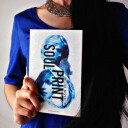
emilybettridge
Written on Apr 6, 2019

Bookhype may earn a small commission from qualifying purchases. Full disclosure.



(...) live boldly. Push yourself. Don't settle. Wear those stripy legs with pride. (William Traynor)
You only get one life. It's actually your duty to live it as fully as possible. (William Traynor)




He can no longer climb mountains or ski down them or anything close, and he’s susceptible to pneumonia. But Me Before You makes it clear that it’s not the difficulty of Will’s new life that’s the real problem—he admits that he could still have a good life—but that he can’t reconcile what he lost. He was the shiny, bright master of the universe once, and now he’s dependent on others, and because of it thinks he’d be better off dead. It’s a point of view that anyone actually living with a serious disability and, in all likelihood, without the resources to have one’s stables converted into sleek, wheelchair-friendly living quarters, will undoubtably find enraging. But it’s also a galling thing to underlie a romance, despite Claflin doing his best to sell Will as a Byronic hero slowly softening to the warmth of his working-class companion. . . . A drama in which everyone, lips trembling, approves of an able-bodied person’s desire for suicide would be obviously repellent, but in Me Before You, a man’s suicidal ideation is treated as tragic but understandable, his disability making his life less worth saving. Isn’t that romantic? No, it’s really not.
There are so few empathetic depictions onscreen of people whose bodies are different than what we call normal. This film is a squandered chance to illuminate the ways in which bodies function differently but feelings like ardour and lust are universal. Instead, Me Before You is clearly disgusted by the needs of the quadriplegic body and Will’s disability is aestheticized. It is as though the film itself is swaddled in soft cashmere. Through dialogue we hear that Will’s pain and suffering is gruesome, so debilitating that questions of suicide and assisted dying lie not far outside of the shot. And yet, we see none of this “ugly” stuff. Will’s insistence that his is not really a life worth living reads, then, as a cold and insidious insistence that in fact it is the disabled life that is not worth living. By contrast, we can look to Hanya Yanagihara’s 2015 novel A Little Life for a complex and affecting narrative of living with and through pain. Without shirking contentious questions of suicide and trauma, it offers a better love story, too.


